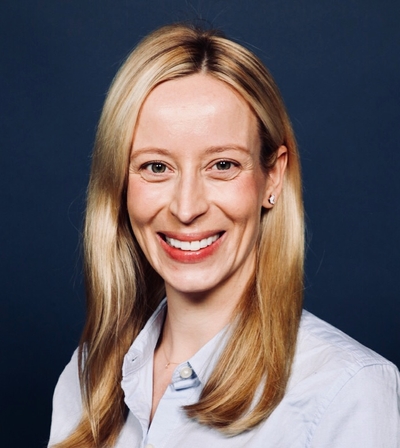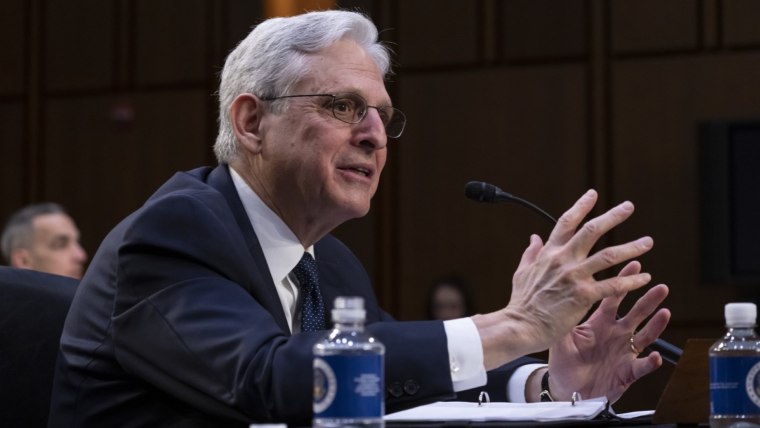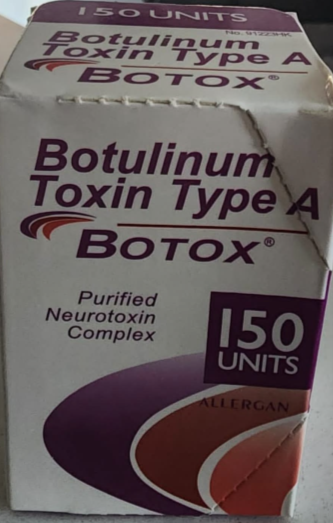|
Help |
Site Map
|
Bringing women policymakers together across party lines to advance issues of importance to women and their families. Congressional Schedule: July 22-26, 2024. Weekly Legislative Update. This week, the House is scheduled to consider H.R. 8998, the FY2025 Interior, Environment, and Related Agencies spending bill. The legislation includes funding for the Smithsonian American Womens History Museum. Also this week, the House is scheduled to consider H.R. 8773, the FY2025 Financial Services and General Government spending bill. The legislation includes funding for women-owned business programs at the Small Business Administration.
"The National Federation of Republican Women is the largest grassroots Republican women's organization in the country with hundreds of clubs. Founded in 1938, its members made the phone calls and knocked on the doors that elected Republican candidates for decades. Its Tuesday luncheon featured Arkansas Governor Sarah Sanders. The Master Calendar said it was SOLD OUT and they wouldnt let me in. I was able to get into their lounge at the Fiserv Forum Wednesday evening, where I was repeatedly asked if I was a member, and if not, would I join. Im press, I said. I cant join anything partisan. I then said: What brings you here? On hearing that, finding anyone willing to chat with me was like pulling teeth."
Jo
Theres Plenty To Do at the RNC if you have the right credentials
by Jo Freeman
Every national nominating convention has plenty of auxiliary events, some authorized, some not. Getting space can be a challenge; getting th…
"Even with pre-convention credentials, some places are closed. The North building of the Baird Center is open to press. The South Building is not. I was turned away completely before getting my pre-convention credentials. Once they were hanging from my neck, security let me in. I discovered that the convention committees (Platform, Bylaws, Credentials) were meeting in that side of the Baird Center. But they were closed to press. Indeed on my way out, when I happened to mention to the two Security guards that I wrote for a small online magazine, they told me that I wasnt allowed into the South building at all. They let me in initially because I dont look like press and they thought I was one of many volunteers."
NIH-funded analysis of health record data shows severe reinfections often follow severe first infections. COVID-19 tend to foreshadow similar severity of infection the next time a person contracts the disease. Additionally, scientists discovered that long COVID was more likely to occur after a first infection compared to a reinfection. The study, funded by the National Institutes of Healths (NIH) Researching COVID to Enhance Recovery (RECOVER(link is external)) Initiative, is published in Communications Medicine(link is external).
Melting of glaciers in a major Alaskan icefield has accelerated and could reach an irreversible tipping point earlier than previously thought, research led by Newcastle University suggests. The increased rate of glacier thinning has also been accompanied by increased glacier fragmentation... 100% of glaciers mapped in 2019 have receded relative to their position in 1770, and 108 glaciers have disappeared completely. Study lead, Dr Bethan Davies, Senior Lecturer, Newcastle University, said: Its incredibly worrying that our research found a rapid acceleration since the early 21st century in the rate of glacier loss across the Juneau icefield.
Findings come from an NIH analysis of more than two decades of dietary data from 390,124 U.S. adults. "The analysis showed that people who took daily multivitamins did not have a lower risk of death from any cause than people who took no multivitamins. There were also no differences in mortality from cancer, heart disease, or cerebrovascular diseases. The results were adjusted for factors such as race and ethnicity, education, and diet quality." Because the study population was so large and included lengthy follow-up and extensive information on demographics and lifestyle factors, the researchers were able to mitigate the effects of possible biases that may have influenced the findings of other studies. For example, people who use multivitamins may have healthier lifestyles in general, and sicker patients may be more likely to increase their use of multivitamins.
"About substance use disorders: Substance use disorders are chronic, treatable conditions from which people can recover. In 2022, nearly 49 million people in the United States had at least one substance use disorder. Substance use disorders are defined in part by continued use of substances despite negative consequences. They are also relapsing conditions, in which periods of abstinence (not using substances) can be followed by a return to use. Stigma can make individuals with substance use disorders less likely to seek treatment. Using preferred language can help accurately report on substance use and addiction. View NIDAs online guide.
"Research shows that at least one in 10 older adults who live in the community experiences some form of maltreatment each year and this is likely an undercount, because only one in 14 cases is reported. People who experience abuse have higher rates of depression, hospitalization, and institutionalization and they are more likely to die prematurely. They also may experience deteriorated family relationships, diminished autonomy, and institutionalization as the direct result of maltreatment."
Jo Freeman Writes: "I saw few female faces in the delegate ballroom. From counting faces, I estimated that women were only 20 percent of the delegates. A couple women sitting behind credentialing tables said they thought it was closer to 30 percent. Unlike the two major parties, the LP does not require half women or any other percentage among its delegates. That doesnt mean the LP is afraid of female leadership. Angela McArdle was elected to another two-year term as Chairperson of the LP and Caryn Ann Harlos was re-elected as Secretary. All the speakers were male. McArdle and Harlos were the only two women I saw on a stage."
"Despite an unappealing raspy voice, (Robert F.) Kennedy made an appealing speech to libertarians. He had clearly identified those issues on which he and libertarians agreed, without saying that he was a libertarian. He also said he would go after both Trump and Biden, but spent 90 percent of his time going after Trump. He worked his way through the Constitution, starting with the first ten amendments, aka the Bill of Rights, interpreting each in libertarian language, while identifying Trump actions to the contrary. For this, Kennedy mostly got applause. There was one Free Palestine shout from the audience, but that was pretty much it."
"It has been shown that treatment with hormone replacement therapy prevents the increase in the rate of abdominal adipose tissue accumulation that was noted with the menopause. Thus, it appears that the loss of ovarian function induces a reduction in resting metabolic rate, physical activity energy expenditure, fat-free mass, and an increase in fat mass and abdominal adipose tissue accumulation. These modifications probably contribute to the increased risk of cardiovascular disease of postmenopausal women."
"While Albright was the highest-ranking woman in the country at the time she served in the administration, she was not in the presidential line of succession because she was born in Czechoslovakia ... She saw the US as the "indispensable nation" when it came to using diplomacy backed by the use of force to defend democratic values around the world. "I think the personal relationships I established mattered in terms of what I was able to get done. And I did bring women's issues to the center of our foreign policy."
By bringing the experiences of American women to the fore, Brilliant Exiles provides a counternarrative to conventional histories of Americans in Paris that focus on the interwar period and the Lost Generation of men such as Ernest Hemingway and F. Scott Fitzgerald, said curator Robyn Asleson. The exhibition will highlight alternative approaches to modernism developed by women, as well as the enterprises through which they catalyzed creativity and forged interconnected communities. "The exhibition reveals the dynamic role of portraiture in articulating the new identities that American women were at liberty to develop in Paris, with works by artists including Berenice Abbott, Alice Pike Barney, Romaine Brooks, Anne Goldthwaite, Loïs Mailou Jones, Henri Matisse, Isamu Noguchi, Pablo Picasso, Man Ray, Anne Estelle Rice, Augusta Savage, Edward Steichen, Alfred Stieglitz, Laura Wheeler Waring and Marguerite Zorach."
Jo Freeman Writes: This book is about Raines effort to put together a jigsaw puzzle about Union sentiment in Alabama, beginning with his family. Raised in Birmingham, Raines ancestral roots are in Winston County in NW Alabama, famous for the legend of the Free State of Winston. According to the legend, a mass meeting was held at Looneys Tavern in Winston County to decide how to respond to Alabamas vote to secede from the Union. (pp.121-2) Those present passed a resolution that no state can legally get out of the Union, but if it could, then a county could cease to be a part of the state. Winston County didnt set up its own independent government; it just asked to be left alone because its citizens didnt want to shoot at their neighbors ... or the flag of Washington, Jefferson and Jackson.
"Todays discussions and dedication of the Faces of Gun Violence Exhibit this afternoon reflect a deep and abiding commitment by the women and men of the ATF to victims and survivors of gun violence. Im grateful to the ATF and to all of you for being here especially those who have lost loved ones to gun violence. Your presence honors their memory and fuels our fight for a better, safer future. The community gathered today shares a powerful bond. You are survivors. You are advocates. You are members of law enforcement. You call different places home and you come from different walks of life. But together, youre bound by extraordinary courage. Your lives have been transformed by gun violence but you are not defined by it.
You share a commitment to turn your pain into purposeful action doing everything you can to prevent another family from enduring the same loss."
"FDA is alerting health care professionals and consumers that unsafe counterfeit versions of Botox (botulinum toxin) have been found in multiple states and administered to consumers for cosmetic purposes. FDA is aware of adverse events, including hospitalizations, linked to the counterfeit Botox. Symptoms included blurred or double vision, difficulty swallowing, dry mouth, constipation, incontinence, shortness of breath, weakness and difficulty lifting ones head following injection of these products. These symptoms are similar to those seen when botulinum toxin spreads to other parts of the body.FDA takes reports of counterfeit products seriously and is working closely with the Centers for Disease Control and Prevention (CDC), state health departments and manufacturers to help protect the nations drug supply."
|
|

 Women's Congressional Policy Institute; Weekly Legislative Update, July 22, 2024; Rural Development, Food and Drug Administration, Agriculture, Nutrition Assistance, Child Care, Women-owned Business Programs at the Small Business Administration.
Women's Congressional Policy Institute; Weekly Legislative Update, July 22, 2024; Rural Development, Food and Drug Administration, Agriculture, Nutrition Assistance, Child Care, Women-owned Business Programs at the Small Business Administration.
 Jo Freeman: Fourth Dispatch from the RNC -- Largely on Things To Do At The Convention
Jo Freeman: Fourth Dispatch from the RNC -- Largely on Things To Do At The Convention















